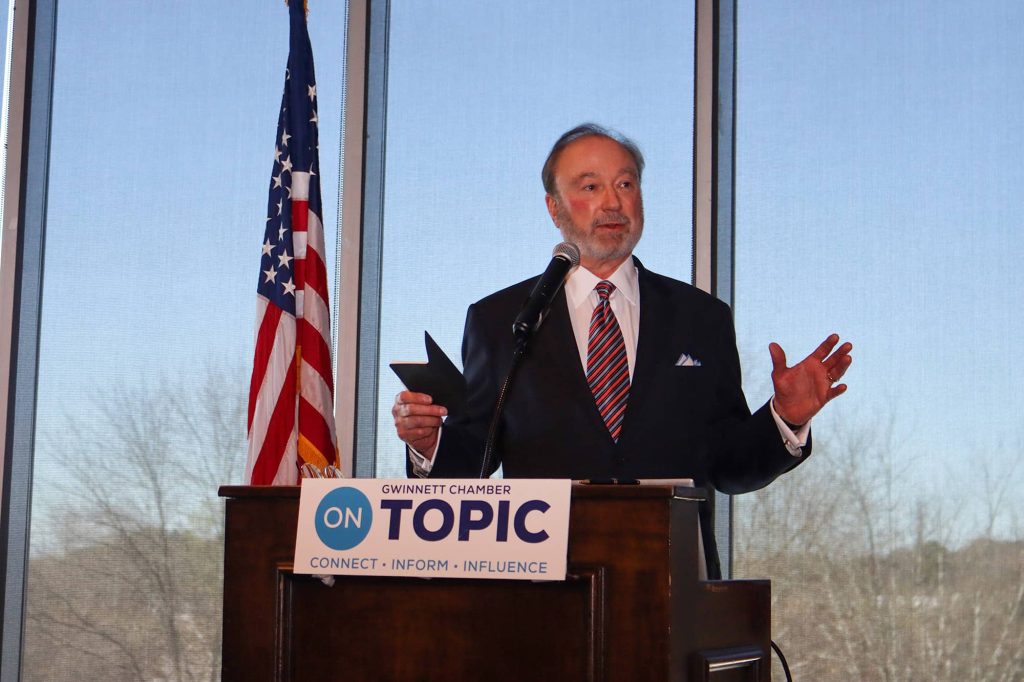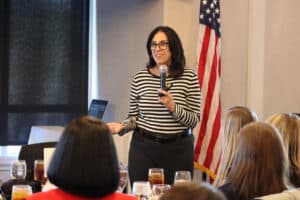Inflation is up but starting to decline. Population is one of the fastest growing and most diverse in the U.S. Jobs are once again on the rise and wages have increased. Together with a strong business market, resilient economy, and quality of life, the 11-county Atlanta MSA appears to be in pretty good shape.
Atlanta Regional Commission (ARC) Chairman Kerry Armstrong set the stage for his annual ‘State of the Region Address’ during the Gwinnett Chamber ON TOPIC Luncheon presented by Porter Steel. Armstrong noted that population for the city of Atlanta alone was well on track to reach 1.8 million by 2050. And with more people, come new – and often different – challenges.
“It’s certainly true that our region is thriving. But it’s also true that not everyone is enjoying that success,” said Armstrong. It was no surprise that he started with the challenge of workforce housing. He noted that home prices for the region have increased four times faster than wages over the last decade. For young families and essential workers like teachers, nurses, first responders, and public safety professionals, home prices in Atlanta are moving further and further out of reach. In addition, middle-wage jobs have decreased by 8,700 in the last five years as high-wage and low-wage jobs have exponentially grown. “It is clear. We cannot do things the way we always have… [we must take] bold and decisive action.”
Armstrong was not remiss in addressing transportation noting its importance to the very foundation of the ARC’s mission and purpose. He reminded the audience that the ARC is working on its next 4-year update of the long-term Metro Transportation Plan and would be launching a public participation process later in 2023 complete with digital surveys, web resources, and opportunities to provide public input. Armstrong also highlighted the Fed’s Infrastructure Investment and Jobs Act passed in 2021, emphasizing how critical this will be to advancing multi-modal options for our booming population while underscoring the fact that these Acts typically come with a local matching requirement. And funding must come from somewhere.
Additional priorities for the future included management of Atlanta’s water supply, for which Gwinnett County is a known leader; approaching jobs, wages, and workforce housing using the “Carpenter Index”, and asking if a carpenter building a house today can afford to live in that house; and investing in homeland security and public safety through administration of the Urban Area Security Initiative (UASI).
“The Atlanta region stands at a critical crossroads,” Armstrong concluded. “The decisions and investments we make in the next few years will go a long way to determining our future. So, buckle up; it’s sure to be an exciting ride.”





